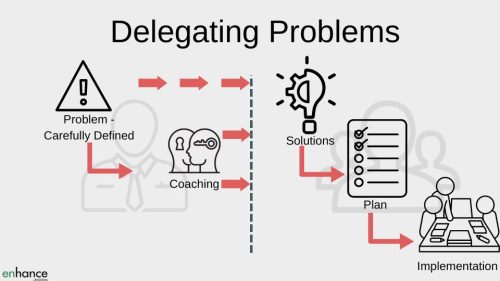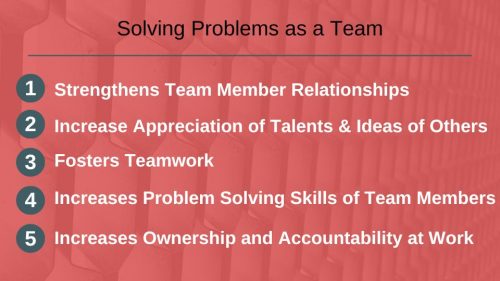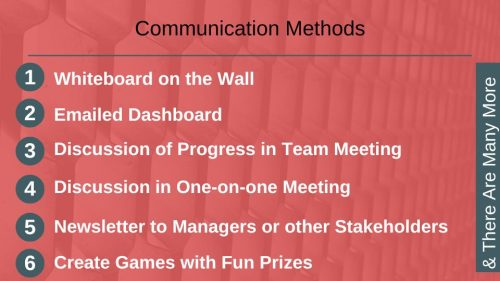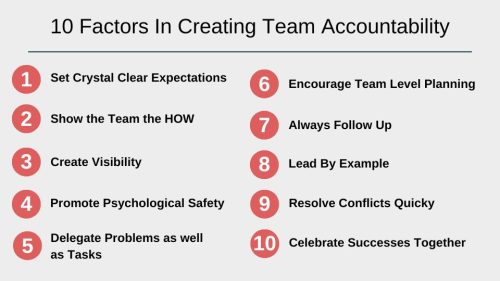10 Factors in Creating Team Accountability

Creating team accountability makes your job as a manager as lot easier. No more fighting each day to get the team interested and motivated to do the tasks needed to reach the team goals. No more having to check constantly that tasks have not been forgotten about, de-prioritised, or delayed.
It is a pleasure to work in a team where team members support each other, work together to achieve goals agreed, know why their contribution is important and are confident in delivering.
To help you in creating team accountability, I am sharing 10 factors important in creating accountability at work in any size of team.
Firstly, What is team accountability? What does accountability really mean in the workplace?
Accountability is a willingness to accept responsibility, to proactively complete tasks, to work towards and deliver what was agreed. Team accountability expands beyond the individual to encompass ensuring the team meets its commitments, to support other team members and appreciate and rely on the strengths within the team.
10 Factors In Creating Team Accountability
- Set crystal clear expectations
- Show the team the how
- Create visibility
- Promote Psychological Safety
- Delegate problems as well as tasks
- Encourage team level planning
- Always follow-up
- Lead by example
- Resolve conflicts quickly
- Celebrate successes together
For each, I give you practical tips for you to implement to create team accountability.
Watch on YouTube
Listen on Podcast
Set Crystal Clear Expectations – the first factor in creating team accountability
Communication of expectations is a challenge for us all. What might be really clear to us, may not be clear to others. Once we have set clear expectations, managers then have the challenge of keeping those expectations in the forefront of everyone’s minds until the goals are reached.
Here are 6 steps to set the scene for creating accountability at work
- Work out exactly what you want to achieve – and why and how this helps achieve longer term goals. The more time you spend on this step, the less you spend on the rest.
- Clearly articulate what is needed in more than one way – write down the messages, read them out to yourself, improve and then repeat.
- Then articulate the goals to the team clearly – verbally, in writing, in pictures, via gamification
- Explain why the goals have been chosen
- Take the team through how they can help reach the goals or ask the team to do this step
- Repeat these messages again and again until the goals are met
A question for you – If the expectations are not important enough for you to repeat and constantly be focusing on until the goals are reached, how are they going to be important to your team?

Show the team the how – The second factor
Having clear goals are great. Everyone knows where the team needs to get to and can work towards achieving the goals.
But what if one or more team members weren’t sure of how they were going to help achieve the goals. Maybe they couldn’t see how their job impacts those goals. Did they struggle to join the dots between the current position and reaching the goals. Maybe they could see some of the steps by not all of them. Or maybe they got stuck on a particular step.
Make the time to check in with each person, to show them how their areas of responsibility impact on the team goals and to show them how they can achieve what is needed. Talk through each step. Work out the problems and plan out solutions. Create a roadmap of tasks and mini-projects.
You could do the thinking and solutioning. Or to create better accountability, you could coach your team or team members to through each area we have just been through. Whether you tell or you coach, both methods require your help, support and involvement.

Create visibility – The third factor in creating team accountability
Imagine playing or watching a complicated sports game with no scoreboard. You have to guess the score all the time. Would you know who won? Would you know who was ahead or behind during the game. It would take work and effort to keep up with the score.
It would be far easier to have a scoreboard, so you know the score at any point in the game by simply looking.
Creating visibility is in effect adding a scoreboard to your team’s activities. Some steps to use visibility to drive team accountability include:
- Work out what to measure for progress against your key goals
- Set up the process to collect data, collate it and present the results to the team
- Create multiple communication methods
- Whiteboard on the wall
- Emailed dashboard
- Discussion of progress in team meetings
- Discussion in one-on-one meetings
- Newsletters to managers or other stakeholders
- Create games with fun prizes for reaching milestones along the way
There are so many ways to share progress. Make it fun and memorable. Creating visibility does a lot to motivate your team.

Promote psychological safety – The Fourth factor in creating accountability
Psychological safety means an absence of interpersonal fear, enabling people to speak up without negative consequences; to share ideas, thoughts, and solutions and to respectfully challenge others.
Psychological safety is crucial for the performance of teams – 89% say it is essential for leaders to create a safe respectful workplace per Pew Research Center.
When creating a culture of accountability, leaders should start by understanding their own emotions and fears and how these impact on their own actions, then turn outwards to support others.
8 ways to promote psychological safety on your team to foster accountability include
- Make time to reflect on what is going on within yourself and around you
- Show vulnerability and empathy with your team members
- Actively ask for questions and feedback
- Show you value and appreciate ideas and solutions
- Own up to mistakes and be okay with mistakes made by others
- Be open and honest – promote transparency
- Actively listen to others
- Foster support for others within the team
Remember, work on your own self-awareness first and then work to implement these behaviours within the team to build psychological safety, essential for creating team accountability.
Delegate problems as well as tasks – The Fifth factor
Delegating tasks requires you to have articulated the goal, worked out the problems, devised solutions and created a plan of action. Then you delegate tasks by telling the team members what to do. This process treats them more like resources or robots and implicitly tells them you don’t yet trust them to do these steps.
Delegating problems only really requires you to articulate the goal clearly or pose the right question. Then you are asking the team members to work out the problems, devise solutions and create a plan of action as well as do the tasks. Delegating problems gives the team members much more scope to:
- Spot problems as far in advance as possible
- Create solutions for those problems
- Organise and plan the implementation of the solutions
You are helping create a whole bunch of skills and getting the individuals to contribute a lot more, which in turn helps them feel trusted and valued.
So delegate problems as well as tasks and be on hand to coach and mentor the team members to find and implement solutions – great for creating a culture of accountability.

Encourage team level planning – the sixth factor in creating accountability at work
Just think about yourself – do you try harder when it is your plan or when it is someone else’s plan?
Ask your team to plan how to overcome obstacles, to create solutions to problems and to work out the steps needed to implement successfully.
Working on solving problems together as a team
- strengthens team member relationships
- increases appreciation of the talents and ideas of others
- fosters teamwork
- increases problem solving skills of team members
- increases ownership and accountability at work
These are all great for creating team accountability
As a manager, you have a vital facilitation role to play – to set the right tone, the encourage the quieter members to get involved, to dampen down the more dominant members and to keep the team focused on solving the right problems.
Try to be the last to add your ideas and solutions into the mix when asking your team to plan solutions.

Always follow-up – the seventh factor in creating team accountability
Successful managers spend time following up on the activities, tasks and problems that team members are working on. Successful managers do this to:
- Remind team members what is important to you and the team
- To check if help is needed – with creating solutions, with getting resources, etc
- To develop team members as opportunities to pass on skills and knowledge arise
- To check on progress
Less successful managers don’t follow up much or they do so in the wrong way. Follow up to help and to develop first and foremost and follow up regularly.
Lead by example – the eighth factor in creating accountability within your team
As leader and manager of a team, big or small, you set the tone and rules through the decisions you make and how you personally behave. You team is watching your every move so they can understand what is okay and what is not.
Spend time reflecting on the messages you are sending through your decisions and actions. Can you achieve the same goal by taking a slightly different approach which will send better messages.
For instance, if you expect your team to come to you to make decisions, or you make decisions when team members ask you to do so, creating team member accountability will be a lot harder.
Instead, if you ask for your team members to make decisions first and then confirm those decisions or you side-step attempts by team members to pass their responsibilities to you, you will be able to create team member accountability a lot more easily and quickly.
Work hard to manage yourself and how you interact with team members to keep their responsibility and accountability with the team member and not take their decisions away from them.
More generally, work on the “do what I do”, rather than work on the “do what I say” with your team. Lead by example when driving team accountability. Make sure you hold yourself accountable and deliver against your own goals.
Resolve conflicts quickly – the ninth factor
Every team will have conflicts. Everyone is different – with different skills, different views, and different backgrounds. Some conflict is inevitable.
How you manage conflict within your team is key.
If the conflict is open, good natured, and respectful, you can harness the different viewpoints, opinions and background to creating well thought out solutions to difficult problems. Encourage everyone to work towards a collective goal in a constructive collaborative way while actively listening and considering everyone’s input. Facilitate, encourage positive behaviours, and jump on negative behaviours while leading by example.
There will be times when conflict become negative and disruptive. As soon as you spot the signs:
- Sit down with each party and actively listen to their viewpoint and position
- Bring the different parties together and facilitate them understanding and taking in the other’s viewpoint
- Facilitate the parties reaching an agreement that both accept as a resolution to the conflict
- Help enforce that resolution if the parties struggle to do so themselves.
As a manager, look for signs of conflict and manage conflict between team members carefully and considerately. Proactively manage any conflicts that arise.

Celebrate successes together – The tenth factor in driving team accountability
Praise, recognition, acknowledgement of work well done and positive reinforcement – these are important to creating accountability. Taking on ownership and accountability is to take on some risk. Providing an equal upside seems pretty important in my view to creating accountability, otherwise why would team members take ownership.
The research confirms how importance celebrating success is. High performing teams praise over 5 times more than they criticise. Generally to keep team members happy you need to praise them 3 times more than criticise.
Taking the time to celebrate success together is hugely important. So some ideas to help you:
- Look for great results, great behaviours, and great decisions by team members
- When you see them, praise them. Praise them
- In one-on-one meetings
- In team meetings
- By the watercooler
- By email
- Through giving prizes
- By putting their picture on the wall as employee of the week
- Organise team celebrations
- Organise team social events
- Organise experiences as prizes to share together.
Use your imagination and work out multiple was of celebrating success on an individual and on team level. Creating team accountability includes genuinely and regularly celebrating team success together.
In Summary
We have gone through 10 factors in creating team accountability. These are not exhaustive. Implement as many as possible when holding employees accountable for their work, their behaviour, and their actions. Implement these factors to be quicker and more successful at creating team accountability.
As a quick reminder, the ten factors in creating team accountability are:

When you create good accountability across the team, team members do half your work for you. Spend time working on the actions to instill accountability in each team member and you spend a lot less time chasing up team members, worrying about mistakes made and rectifying them.
The working atmosphere and your relationship with team members is also a lot more positive and enjoyable.
Creating accountability takes a bit of time, yet the rewards of achieving this are brilliant for everyone (and particularly you the manager)!
Jess








